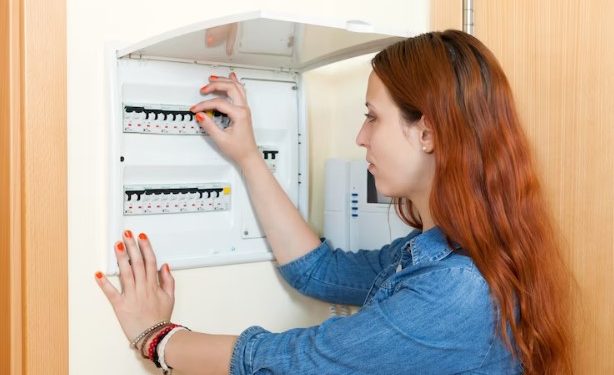Electricity is an integral part of our daily lives. However, our home’s electrical needs often evolve over time due to the addition of new appliances or upgrading old ones. The heart of your home’s electrical system is the electrical panel, and at times, this panel needs to be upgraded to meet newfound demands. Understanding when to upgrade your electrical panel can be a complex task, especially for those who are not experts in the field. This article will guide you through common electrical panel upgrades and help you identify the signs that it’s time for an upgrade. Whether your panel is outdated, overloaded, or simply not meeting your power needs, we’ll provide you with all the information you need to make an informed decision.
What is an Electrical Panel?
Before we delve into the details of panel upgrades, it’s crucial to understand what an electrical panel is. The electrical panel, sometimes referred to as a breaker box, is the central point where the power from the utility company branches out to various parts of your home. The panel contains circuit breakers designed to protect your home and appliances from electrical overloads, which could lead to electrical fires.
An electrical panel plays a significant role in managing and distributing electricity safely throughout your residence. It’s a structured arrangement of fuses or circuit breakers that individually cater to different areas of your home. When a particular circuit draws more electricity than it’s designed to handle, the corresponding circuit breaker in the panel automatically switches off, preventing damage to your appliances and potentially avoiding electrical fires. In essence, the electrical panel acts as a regulatory body, ensuring a balanced distribution of power and providing a safety mechanism against electrical faults. To understand your home’s circuit, look into having it mapped with Circuit IQ.
Common Electrical Panel Upgrades
There are several types of upgrades you can perform on your electrical panel, depending on the needs of your home.
- Circuit Breaker Replacement
This upgrade typically involves replacing old or malfunctioning circuit breakers. If your circuit breakers frequently trip, this could be a sign that they’re no longer able to handle the power demands of your home.
- Panel Expansion
Panel expansion usually involves adding more circuits to your existing panel. This upgrade is often necessary when you add new appliances or rooms to your home that need separate circuits.
- Complete Panel Replacement
In some cases, you might need to replace the entire panel. This could be due to age, damage, or because the panel is no longer sufficient to meet your home’s electrical needs.
When to Consider an Electrical Panel Upgrade
Now that you are familiar with the common upgrades, you may be wondering when it’s appropriate to consider these changes. Here are a few signs that might suggest an upgrade is necessary:
- Frequent Circuit Breaker Trips: Circuit breakers are designed to trip when there’s an overload, preventing fires and damage. If your breakers are constantly tripping, this could be a sign that your panel can’t handle your home’s power demands.
- Old or Damaged Panel: If your panel is old or damaged, it might not be able to protect your home from electrical overloads. As a result, it’s advisable to replace such panels.
- Adding New Appliances: If you’re adding a new major appliance, such as a hot tub or air conditioner, you might need to expand your panel to accommodate the additional demand.
In conclusion, your home’s electrical panel plays a pivotal role in managing and distributing power, protecting your appliances, and maintaining safety against potential electrical fires. It’s essential to be vigilant about its condition and to keep pace with your evolving power needs. Regular assessments and timely upgrades, such as circuit breaker replacement, panel expansion or even complete panel replacement can help ensure its optimal function. Remember, frequent circuit trips, an old or damaged panel, or the addition of new major appliances are strong signals that it might be time for an upgrade. For more advantages to upgrading your panel, check out an article like this. Being proactive about your panel’s health not only ensures your home’s electrical efficiency but is also a wise approach to home safety.











